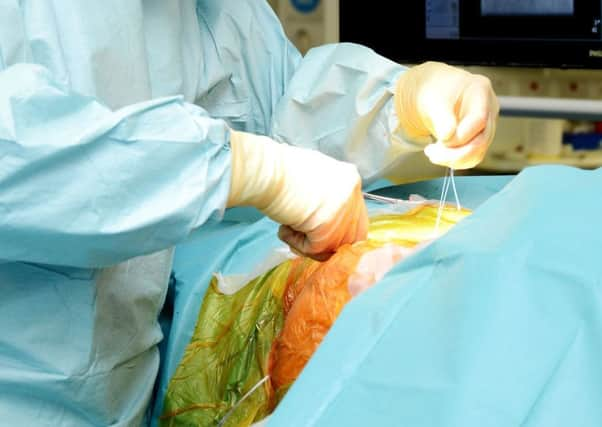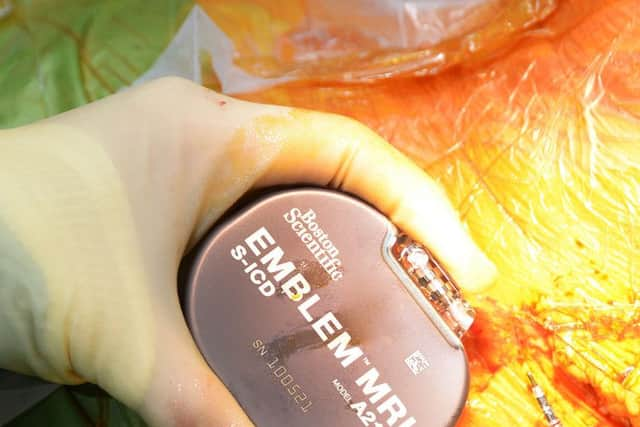Belfast surgeons chosen for cutting-edge heart treatment


The Royal Victoria Hospital has been chosen as a centre to implant the latest version of the underskin defibrillator.
It marks the latest chapter in the hospital’s long association with defibrillation technology - the first portable defibrillator was invented by Royal surgeon professor Frank Pantridge.
Advertisement
Hide AdAdvertisement
Hide AdAround 1,400 people suffer a sudden heart attack in Northern Ireland every year and only about 10% survive.


Those who survive or those who are at high risk of a future cardiac arrest can be treated by implantation of an implantable cardioverter-defibrillator (ICD), which delivers an electric shock to the heart if it detects an abnormal rhythm.
In the past, ICDs fed tiny electrical leads into the heart through the bloodstream. In recent years scientists have developed a version that is implanted under the skin, without the need to put leads into the heart.
The subcutaneous implantable cardioverter-defibrillator (S-ICD) is easier to implant and remove, thus reducing the risk of infection, and also considered better at discriminating between abnormal and normal heart beats, minimising the number of unnecessary shocks administered.
Advertisement
Hide AdAdvertisement
Hide AdThe Belfast Trust is one of three centres in the UK that has been chosen to implant the latest version of the S-ICD.


Dr Ernest Lau, Consultant Cardiologist and Electrophysiologist at Belfast Trust, said: “This latest generation of S-ICDs allows patients to undergo MRI scans and receive therapies appropriate for their needs based on accurate detection of their heart rhythms. These technical advances can also be downloaded onto S-ICDs already implanted into patients, which marks another milestone in healthcare technologies’ march into the digital age.
“The S-ICD is an increasingly attractive option for patients.”
Dr Niall Herity, Clinical Director for Cardiology at the Belfast Trust, said: “The S-ICD has some potential advantages over the conventional ICD. As the technology gets refined, I suspect it will become the device of choice for more and more patients.”